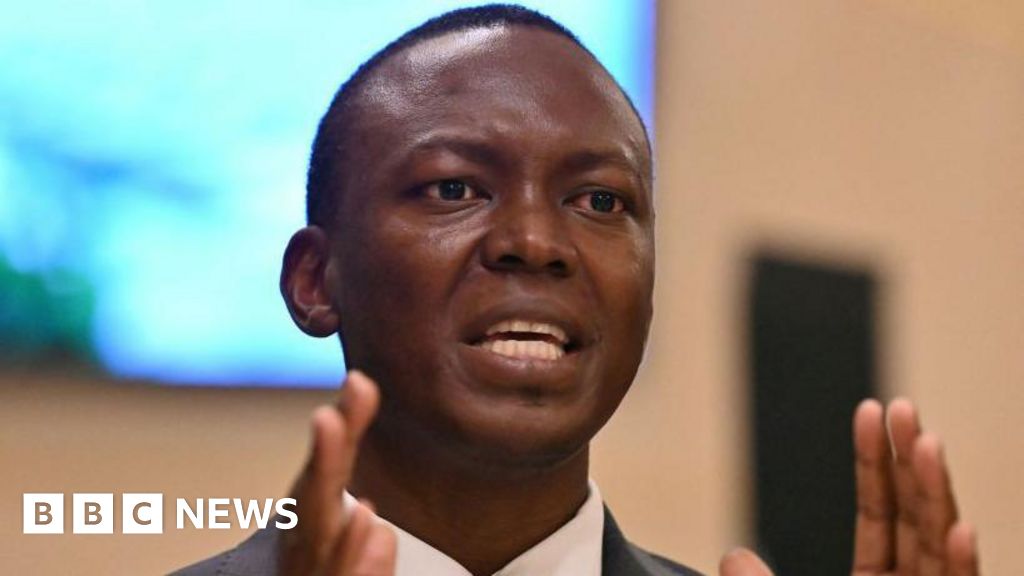Israels Democracy is in Peril — Global Issues
NEW YORK, Oct 07 (IPS) – By all accounts Israel is considered a democratic country, but a close look at its domestic political combustion sadly reveals that Israel’s democracy is in tatters and is tearing at the seams. This is due to the political leaders’ dismal failure to summon their collective resourcefulness and energy to respond to the call of the hour
Righting the Wrong
Israel is now in the midst of its fifth election in four years. None of the coalition governments that were formed during this period has lasted more than a year. Why is that? The answer is fairly simple but extremely troubling.
Although the political parties are broadly divided into two camps, left vs. right, nearly fifteen political parties are running for 120 seats in the Knesset (Parliament). Most, but not all, will pass the threshold of 3.25 percent to qualify for the minimum of four seats.
The country’s political squabbles are centered around personalities and not policies: who gets what position in the government, how to lure or bribe this or the other party’s leader to join the government, which ministry the numerous contending politicians want to hold (regardless of qualifications), the financial appropriations promised for pet projects, and the list goes on.
And to cap it all, just about every head of each party feels they are the most qualified to become the prime minister, yet none can clearly articulate a national agenda to set the nation on a steady course to safeguard its democracy and political stability.
The gravest threat to Israel’s democracy, however, is the sheer failure of all party leaders to grasp that the country is polarized and divided almost evenly between the anti-Netanyahu and pro-Netanyahu blocs (which largely but not exclusively align with left and right), and that neither of the political blocs has been able to form a functioning coalition government that enjoys a stable majority in the Knesset.
Presently, numerous polls which are conducted almost daily show that the result of the coming election will not be much different. The competing two blocks are hovering around 57 and 59 seats, and the country may well have to endure another exhausting cycle of elections and still end up with roughly the same configuration.
One would think that under such circumstances—when the country is existentially threatened by Iran which is racing toward acquiring nuclear weapons, when the West Bank is simmering with violence and Palestinian casualties are mounting, when the prospect of a Palestinian uprising of unprecedented scale is becoming increasingly plausible, when extremist groups such Islamic Jihad and Hezbollah pose an omnipresent danger, when social cohesiveness is sourly lacking, when poverty is rampant and debilitating the social fabric—the leaders of all parties would come to their senses and put the nation’s interest above their own and their party’s.
Together, one would expect that they would seek common ground and reach a consensus to address the urgent issues facing the nation. But that is not the case.
The extent of Israel’s political malaise and the erosion of its democracy cannot be better exemplified by any other than the despicable former prime minister Benjamin Netanyahu. No prime minister in Israel’s history has been as corrupt or would stoop so low to get his way like Netanyahu.
His lust for power knows no bounds. He faces three criminal charges and is willing to destroy the judiciary to make these charges disappear. He is willing to sell the soul of the nation to the likes of Itamar Ben-Gvir, the fascist, Kahanist leader of Otzma Yehudit who is known to seek the expulsion of all Palestinians from Israel, as long as he could help Netanyahu form the next government.
So, when you have a country that has been governed consecutively for more than 12 years by a bigot like Netanyahu who potentially can still form the new government, you know that Israel’s democracy is suffering from an endemic malaise and needs major political remedies.
Just like here in the US, if the Republican party manages to cheat its way through the electoral college and Trump, the most morally bankrupt former president, wins the next presidential election in 2024, our democracy will be shattered and the American dream will wither and die. Israel could face the same fate under Netanyahu.
Thus, if Netanyahu is left with an ounce of dignity and a shred of concern for the nation’s future, he should step aside, face the court with poise, and ask for forgiveness and President Herzog may well pardon him for his service to the nation. This will pave the way for the establishment of a stable wide-based coalition government that can endure and attend to the urgent business of the country.
More than any time in its history, Israel today is in desperate need of a decent, honest, courageous, visionary, and decisive leader to meet the call of the hour. Yair Lapid meets some of the above attributes. He has demonstrated exemplary capability of making the necessary compromises to reach a consensus for the sake of the country.
He is politically savvy and has shown that in his meetings and dealings with global leaders. He demonstrated courage when he stated at the UN General Assembly that the a two-state solution to the Israeli-Palestinian conflict remains the only viable option.
He bravely spoke time and again against the occupation and its demoralizing effect on the entire country. He passionately advocated for equality among Israeli Jews and Arabs, and called for lifting the poor out of their miserable existence. And finally, he strived to nurture a healthy and cohesive society which is the beating heart that sustains democracy.
This round of elections may well be one of the most consequential since Israel occupied the West Bank in 1967. Every political leader, regardless of his or her political leanings, should ask themselves what kind of a country Israel should be in 10 to 15 years. The Israelis want unity of purpose, they want to preserve their democracy, prosperity, security, and peace.
Normalizing relations with more Arab countries is of paramount importance and it should be pursued, but it will not save Israel’s democracy. Nor will using Israel’s remarkable new technologies to buy political influence abroad, however desirable that may be.
Nor will multiplying its trade with foreign nations, which is extremely vital to Israel’s economy and should be further expanded. Nor will maintaining its military prowess and credible deterrence, which is critical to the country’s national security.
Nor will making remarkable advances in just about every sphere of endeavor, including medicine, agronomy, chemistry, military innovations, engineering, electronics, and so many other fields, which are outstanding achievements that every Israeli should be proud of. Indeed, regardless of how crucial all of the above are to the country, none will preserve and safeguard Israel’s democracy.
Israel cannot secure and sustain its democracy unless the political leadership engenders social cohesiveness and equality with a functioning political system that offers political stability and where the national interests come first.
Moreover, Israel cannot and will never be a free nation and a true democracy until it ends the infamous occupation which dishonors Israel at every turn. It is, to be sure, the Achilles’ heel that will eventually make or break Israel’s democracy.
Dr. Alon Ben-Meir is a retired professor of international relations at the Center for Global Affairs at New York University (NYU). He taught courses on international negotiation and Middle Eastern studies for over 20 years.
IPS UN Bureau
Follow @IPSNewsUNBureau
Follow IPS News UN Bureau on Instagram
© Inter Press Service (2022) — All Rights ReservedOriginal source: Inter Press Service
Check out our Latest News and Follow us at Facebook
Original Source







